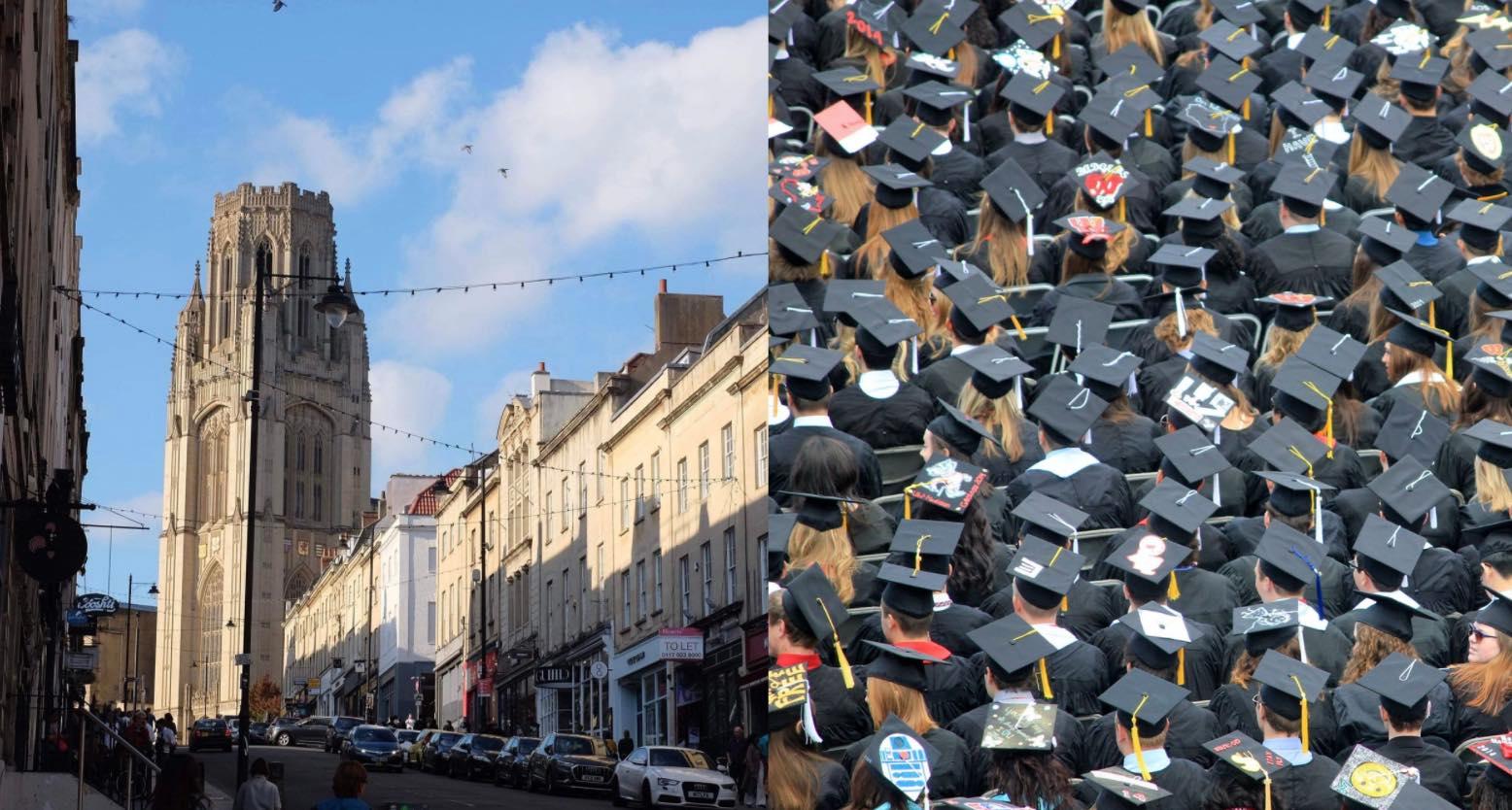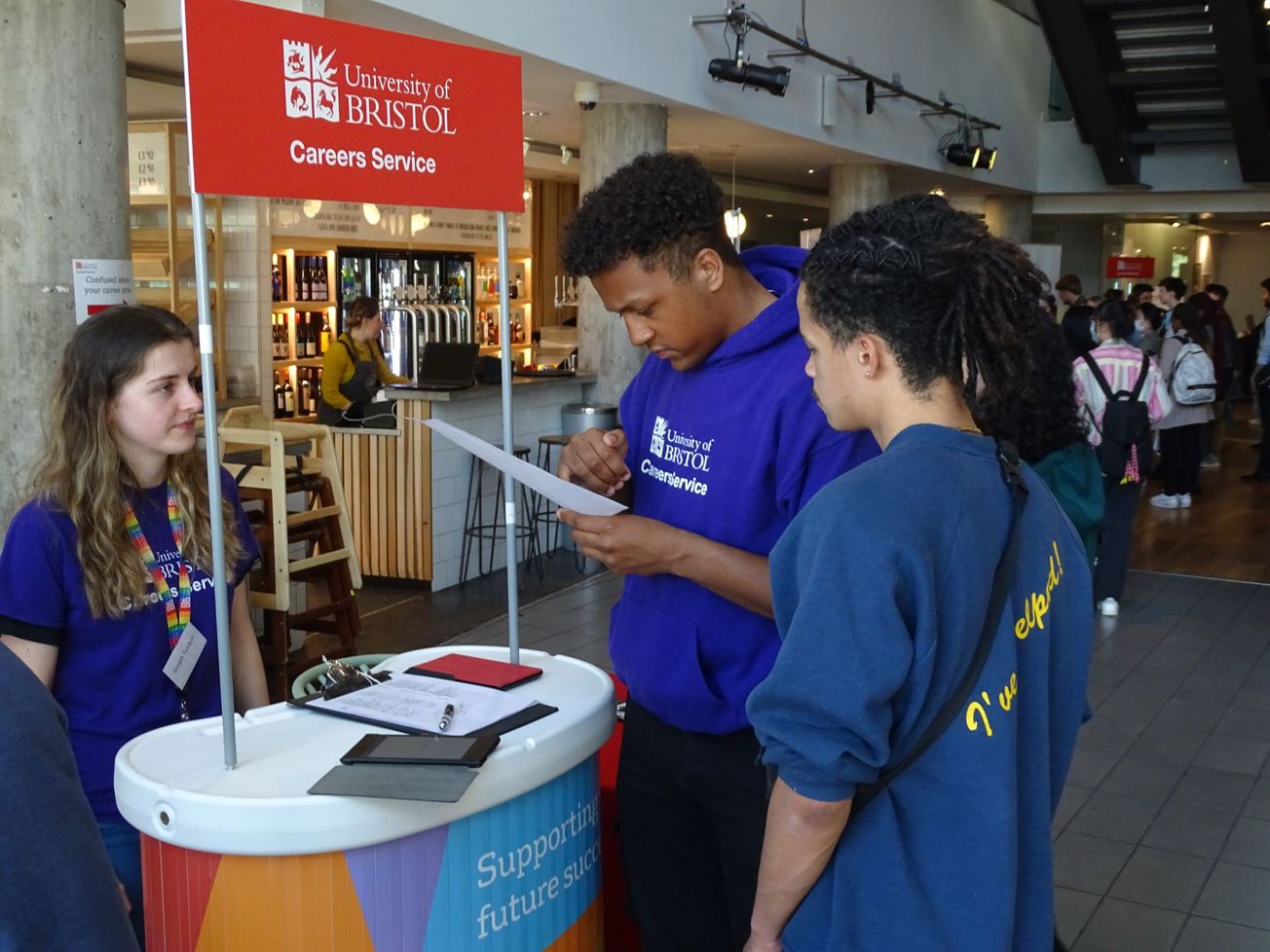By Marine Saint, Deputy Editor and Features Columnist
The end of university. Much like the finale of your favourite show, or the long-awaited final page of a book, this pivotal era of studenthood is overrun with uncertainty, anxiety, and, for many, anticipation. Exploring whether university has lived up to final year students’ expectations feels especially pertinent as we approach a period defined by postgraduate decisions, job applications, and the move away from the security of the university bubble.
According to High Fliers Research, Bristol University is one of the four most targeted institutions by UK recruiters and joint seventh for UK employability (as per the 2022 QS Graduate Employability Rankings). While our university email accounts may be well acquainted with the Careers Service newsletters announcing job fairs, careers advice, and opportunities to apply for postgraduate studies, the reality may seem much less certain. With the security of a (panic) masters and an Alumni discount on offer, the prospect of specialised postgraduate studies in Bristol and beyond is often more appealing than a nine-to-five routine.
The University of Bristol’s reputation as a high-ranking university with a strong Careers Service and support network is one which students can maximise, especially as they embark upon the task of applying for jobs, researching an MA course, or deciding how to spend their year out. The academic side of University, however, does not necessarily define our time as a student.

The completion of final deadlines and assessments should feel like the ultimate closure from university. But throughout terms of striking and marking boycott anxiety, do the final year cohort really feel that they have completed the ‘university experience?’ Epigram asked its readers to share their honest feelings about their time as an undergrad ending, and whether they have learnt life lessons from university which suitably prepare them for their next stages, whatever they may be.
Discussing how being at university shaped their perspective on adulthood, one final year law student told Epigram how they felt ‘university sets you up for being an adult because it’s the first time you’re moving out and getting to live by yourself. But at the same time, we haven’t formally become adults because we still live in a sheltered environment, so I think [it is] a stepping stone between being a teenager and a full on adult.’
Living independently is evidently determined by one’s environment. The initial tastes of adulthood could be seen as a glorified extension of school, or a brutal reality of juggling bills, choosing housing, and constantly budgeting, in which university overwhelmingly appears to be a liminal stage preceding ‘real’ adulthood.
As the COVID generation, we have seen a far more isolated and disconnected impression of university, and while Bristol gained a 78 per cent satisfaction score in the Guardian’s 2022 rankings, the social, economic, and pastoral satisfaction of being in Bristol is one largely shaped by a student’s environment and personal relationships.
Another final year English student told Epigram that university had been a surprisingly positive and significant experience for them: ‘For me, university has definitely been the happiest time of my life. It’s almost strange to say this considering the difficulties of Covid and lockdown we’ve faced whilst undergoing our studies, but overall, I’ve never been happier, and I’ve never had such good friends.’
In all its fictional depictions, university is an era best associated with coming-of-age, a life stage which is no stranger to the Bildungsroman genre. What might the quintessential depiction look like? Normal People (2020), Good Will Hunting (1997), or Gilmore Girls (2000) may spring to mind as classic portrayals in popular culture and, while living away from home, surrounded by friends, and stimulating teaching may be romanticised, the media constantly reminds us that this period of our lives has a time limit.
These fictional explorations of university are increasingly aware of the intense loneliness and struggles to adapt which inevitably come with moving to university. But the process of leaving is one which warrants an open discourse, as each graduating cohort has to navigate this stage without a clear blueprint example.
Ghost students?: The legacy of the pandemic on the Covid cohort
Boosting your graduate career opportunities
An Engineering student in their penultimate year spoke of how the people and surroundings at Bristol had helped them to develop emotionally and mentally, but that this maturity also meant that they were more conscious of their future plans. They explained: ‘I feel as though I have so much more to learn about adulthood when I leave university. I aim to be patient and comfortable with the feeling of being ‘lost’ of purpose that may arise while job searching and living at home.’
Loss and uncertainty: are these always inevitable when one routine ends, and we are left to determine our next choices? There is clearly no set pattern defining the end of university, except that of a sense of self-questioning, from growing into new interests to ultimately having to reflect on what happens next and what we have valued the most alongside our studies.
Featured Image: University of Bristol Careers Service
Has university lived up to your expectations of the student experience?








